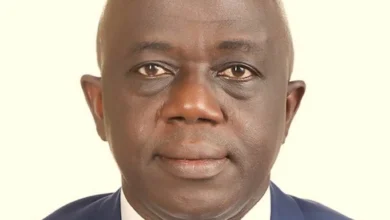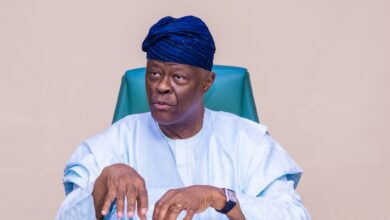OPINION: Has The Mission To Save The Naira Begun?

The government may have begun the resuscitation of the Naira as it recently lifted the suspension restricting 43 items from its official forex platform, Investors’, and Exporters’ window. The restriction which became effective as announced by the Central Bank of Nigeria in 2015 originally had 41 products, but later had two other items added.
The Governor of the Bank, Mr. Olayemi Cardoso, announced the lift last Thursday among other policy initiatives he promised to unveil to halt the downward slide of the Naira against other currencies, particularly the American dollar and British pound sterling.
The uncontrolled freefalling of the local currency, occasioned by the decision of the government to harmonize the exchange rate due to arbitrage, and racketeering in the parallel market of the forex subsector made the decision inevitable.
The Governor gave a hint of this reversal among other reforms he promised during his screening by the Nigeria Upper legislature.
This restriction affected products like rice, margarine, palm oil, palm oil products, dairy products, poultry, tomatoes, wheelbarrows, cosmetics, and steel products, including toothpicks to mention but few.
The objective of the lift according to the Circular released by the Bank is to boost liquidity in the foreign exchange market, promising to intervene from time to time to ensure that importers of these items have free and unhindered access to forex from the official window.
The CBN Act 2007 stipulates that Naira is the only acceptable legal tender in the country, but the emerging trend in irrationality is the dollarization of the economy.
The non-regulation of the dollar by the government as is the case in some countries, particularly African countries, has increased the appetite and demand for the currency, preferring it as a store of value, over and above the local currency to perpetrate rent-seeking and arbitrage.
The importers of the restricted items have had to approach the parallel market to source for the dollar, invariably creating chaotic pressure on the Naira. This atmosphere apparently took a toll on the Naira.
Obnoxiously, in Lagos, Abuja and PortHarcourt, landlords, hoteliers, and proprietors of schools started charging and demanding payments in dollars and pounds sterling. Equally, the attitudes of some politicians and operators in the economy, particularly, the parallel market operators have not helped the fate of the currency.
The usage of foreign currencies during electioneering campaigns impacted heavily on the Naira. It was an inexcusable national security offence, punishable by law.
Also, Nigerians’ huge appetite for foreign imported goods is offensive, exporting jobs to other nations, thereby depleting the scarce national foreign reserves. More so, Nigeria’s backward integration intention has not been matched with action.
Factories have closed and more are closing with its attendant job losses. Poverty reigns unchecked in the country, youth unemployment at almost 40 percent, creating despondency and Ja’pa syndrome. The brain drain phenomenon is fast depleting the economy of its eggheads, and professionals are emigrating in droves in search of greener pastures.
It is noteworthy and pleasing that the administration of President Tinubu has opted to arrest the drift, injecting fresh brains into key organs of government saddled with the responsibility of creating jobs and wealth.
The CBN’s latest circular announcing this decision, TED/FEM/FPC/GEN01/010 stated that “importers of all 43 items previously restricted by the 2015 circular, and its addendums are now allowed to purchase foreign exchange from the official Investors and Exporters’ forex window.
Prior to this decision, key stakeholders in the economy, the Manufacturers Association of Nigeria, Lagos Chamber of Commerce and Industries, Airline Operators Association of Nigeria among others had called for a review of the policy to allow for transparency in the subsector.
What the CBN has done in the opinion of some concerned Nigerians is that the Bank has now decided to tow the process of policy normalization in tandem with the present administration’s philosophy.
The suspended restriction is considered an anathema to extant trade policy. This is because the restricted items were not under any prohibition. That singular action they opined caused the distortion and chaos not only in the forex subsector but the economy at large.
This latest responsive action from the CBN Governor has been variously commended by sector stakeholders but warned the Bank against suppressive tendencies, particularly, outside the I&E window.
A seasoned Financial/Business publisher, Mr. Ewache Ajefu, commended Mr. Cardoso for taking the bull by the horns. He, however, urged the fiscal authority to also review existing laws impeding economic growth, and come up with friendly policies that will encourage and boost local production and wealth creation.
He urged policy formulation, coordination, and collaboration, devoid of rancor, witnessed during the immediate past administration between the monetary and fiscal authorities.
He also welcomed the decision of the Governor to “pull back” the CBN from its developmental financing activities witnessed during the immediate past governor of the Bank.
He urged Mr. Cardoso to live up to his words to streamline the relationship between the Bank and the government.
He suggested a more mutual and beneficial relationship, respecting each other’s mandate, but should endeavor to always play a limited advisory role that is supportive of economic growth and development.
Mr. Adisa Olatilewa, an agricultural entrepreneur, also welcomed the suspension of the restriction. He lamented how his businesses suffered while the restriction lasted.
He advised current managers of the nation’s bank to restrict themselves to the mandate of the Bank and shy away from direct involvement in fiscal development financing initiatives.
He said his experience, and many others like him, during the last administration of President Buhari, was distasteful.
He wants the CBN as the banker to the government, and its advisor, to play the roles as constitutionally ascribed to policy measures, regulations, and programmes that will support economic development and the welfare of Nigerians.
He also wants the government to liaise with the CBN on measures to be taken to arrest the intractable inflation which in his opinion may jump to 26 percent if urgent measures are not taken.
If the government works with the CBN, and the CBN is sincere to stick to its mandate, Olatilewa was confident the economy will soonest begin to bubble once again.
Ademola Oyetunji writes from Ibadan.






